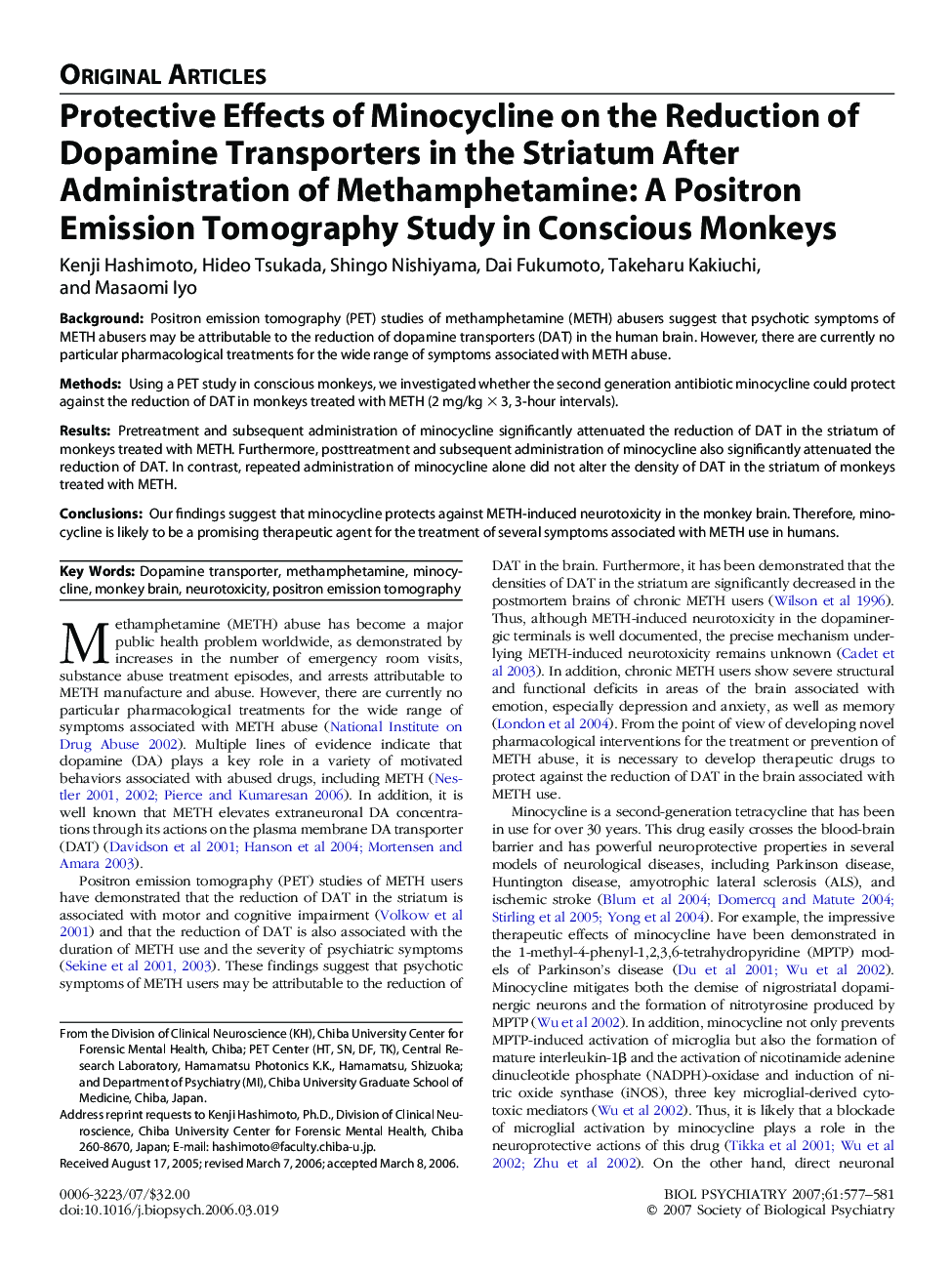| Article ID | Journal | Published Year | Pages | File Type |
|---|---|---|---|---|
| 4181083 | Biological Psychiatry | 2007 | 5 Pages |
BackgroundPositron emission tomography (PET) studies of methamphetamine (METH) abusers suggest that psychotic symptoms of METH abusers may be attributable to the reduction of dopamine transporters (DAT) in the human brain. However, there are currently no particular pharmacological treatments for the wide range of symptoms associated with METH abuse.MethodsUsing a PET study in conscious monkeys, we investigated whether the second generation antibiotic minocycline could protect against the reduction of DAT in monkeys treated with METH (2 mg/kg × 3, 3-hour intervals).ResultsPretreatment and subsequent administration of minocycline significantly attenuated the reduction of DAT in the striatum of monkeys treated with METH. Furthermore, posttreatment and subsequent administration of minocycline also significantly attenuated the reduction of DAT. In contrast, repeated administration of minocycline alone did not alter the density of DAT in the striatum of monkeys treated with METH.ConclusionsOur findings suggest that minocycline protects against METH-induced neurotoxicity in the monkey brain. Therefore, minocycline is likely to be a promising therapeutic agent for the treatment of several symptoms associated with METH use in humans.
